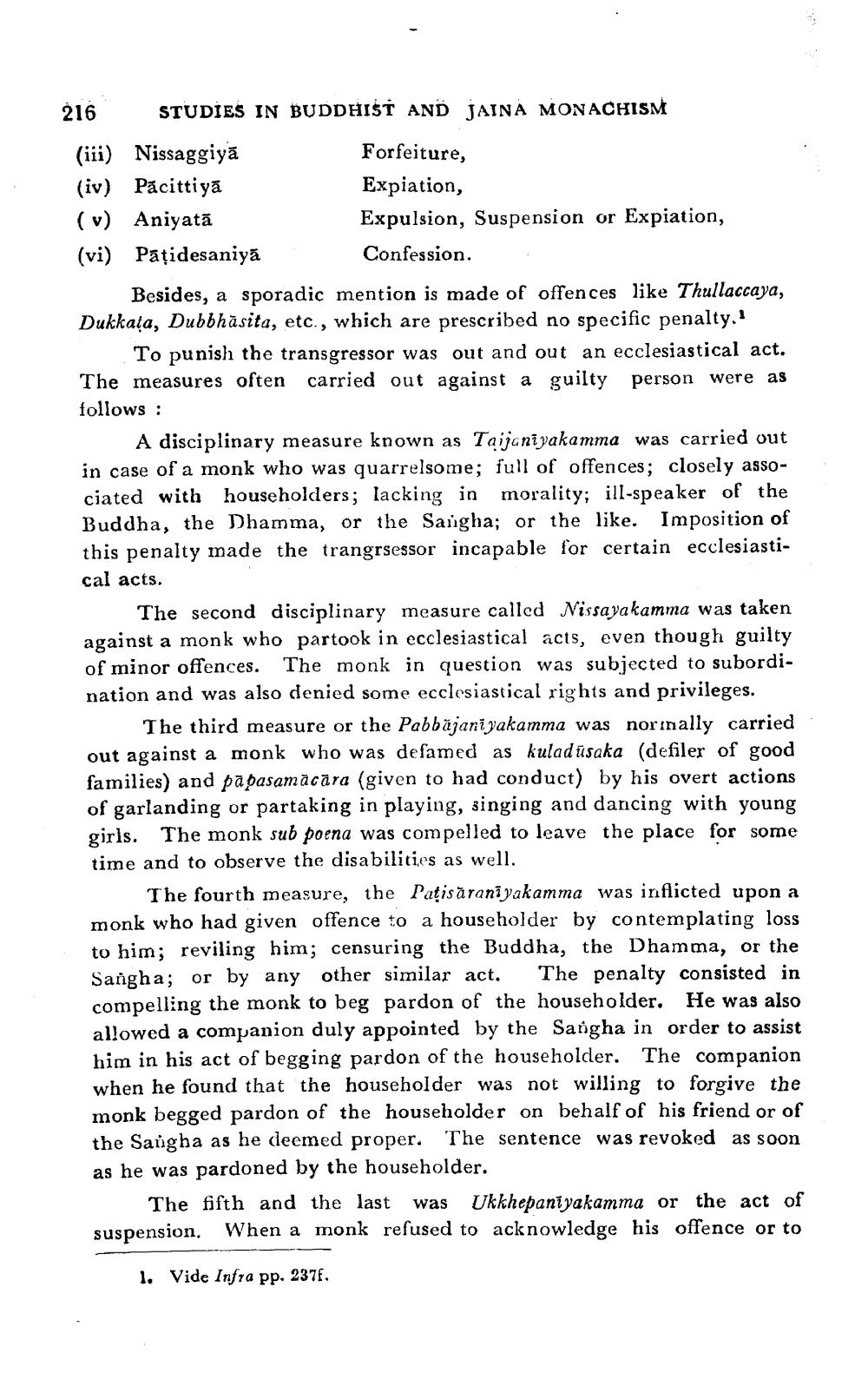________________
216 STUDIES IN BUDDHIST AND JAINA MONACHISM (iii) Nissaggiya
Forfeiture, (iv) Pácittiya
Expiation, (v) Aniyatā
Expulsion, Suspension or Expiation, (vi) Pațidesaniyā
Confession Besides, a sporadic mention is made of offences like Thullaccaya, Dukkata, Dubbhāsita, etc., which are prescribed no specific penalty.!
To punish the transgressor was out and out an ecclesiastical act. The measures often carried out against a guilty person were as follows :
A disciplinary measure known as Taijaniyakamma was carried out in case of a monk who was quarrelsome; full of offences; closely associated with householders; lacking in morality; ill-speaker of the Buddha, the Dhamma, or the Sangha; or the like. Imposition of this penalty made the trangrsessor incapable for certain ecclesiastical acts.
The second disciplinary measure called Nissayakamma was taken against a monk who partook in ecclesiastical acts, even though guilty of minor offences. The monk in question was subjected to subordination and was also denied some ecclesiastical rights and privileges.
The third measure or the Pabbajani yakamma was normally carried out against a monk who was defamed as kuladusaka (defiler of good families) and papasamācāra (given to had conduct) by his overt actions of garlanding or partaking in playing, singing and dancing with young girls. The monk sub poena was compelled to leave the place for some time and to observe the disabilities as well.
The fourth measure, the Patisārani yakamma was inflicted upon a monk who had given offence to a householder by contemplating loss to him; reviling him; censuring the Buddha, the Dhamma, or the Sangha; or by any other similar act. The penalty consisted in compelling the monk to beg pardon of the householder. He was also allowed a companion duly appointed by the Sangha in order to assist him in his act of begging pardon of the householder. The companion when he found that the householder was not willing to forgive the monk begged pardon of the householder on behalf of his friend or of the Sangha as he deemed proper. The sentence was revoked as so as he was pardoned by the householder.
The fifth and the last was Ukkhepaniyakamma or the act of suspension. When a monk refused to acknowledge his offence or to
1. Vide Infra pp. 2375.




